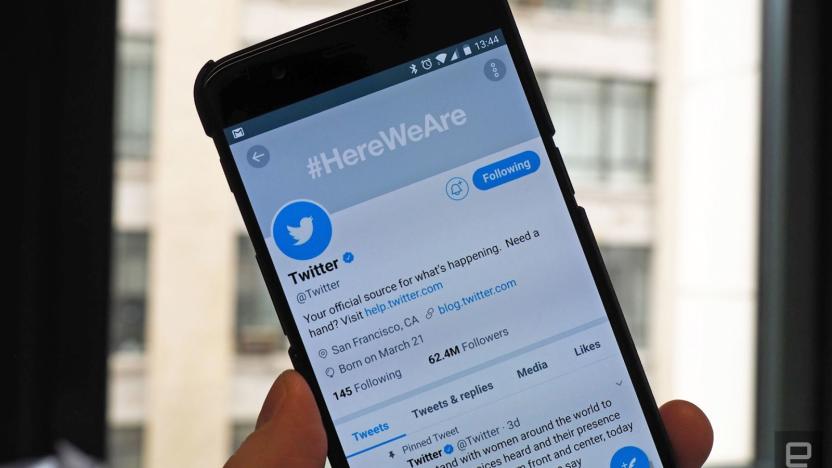datasaver
Latest

Google Duo's group video calls roll out to everyone
Google is making Duo more useful as it's rolling out group video calls to everyone on Android and iOS. You can have up to eight people on a call at once (a far lower limits than FaceTime's 32 and Skype's 50). Group calls gradually went live in some markets this month, but now they'll be available for everyone.

Twitter brings a data-saving feature to its main mobile app
To date, invoking Twitter's data-saving mode on your phone has meant either installing Twitter Lite or relying on the mobile web version. You won't have to make that compromise from now on, as Twitter has introduced a data saver option to its Android and iOS apps. Toggle the feature in your Data Usage settings and it will both lower image quality as well as disable autoplay for videos. You can choose to load higher-quality pictures in those moments when you have data to spare.

Chrome is now faster and more reliable on iOS
Google's Chrome browser has a loyal following on iOS, but it's certainly not for the speed or reliability -- it has long used a second-tier iOS web rendering engine (UIWebView) that isn't nearly as polished as what you get in Safari. At last, though, it's catching up. The latest iOS version of Chrome now uses a newer engine (WKWebView), giving it performance much closer to Apple's own browser -- it's "significantly" faster, particularly when it comes to JavaScript. You'll be glad to hear that it's much more stable, as well, with a crash rate that's a whopping 70 percent lower.

Google brings data compression from mobile Chrome to PCs
Google has offered an option to reduce the amount of data Chrome uses on Android and iOS for a while, and now it's rolled out an extension to do the same for desktop users. Just like the mobile option, it works by compressing the data on Google's servers first -- click here for more info on how it works -- before sending it on, and claims some pages can be reduced in size by as much as 50 percent. VentureBeat spotted Data Saver (beta) in the Chrome Web Store, where the description notes that just like on mobile, it doesn't intercept SSL-protected or Incognito tabs to protect user's security and privacy. Proxy-based compression is hardly a new concept, but if you're a heavy Chrome user then now you have a Google-powered option, especially if you're on a tethered connection or somewhere else it pays to be bandwidth-conscious. [Image credit: Bloomberg via Getty Images]


